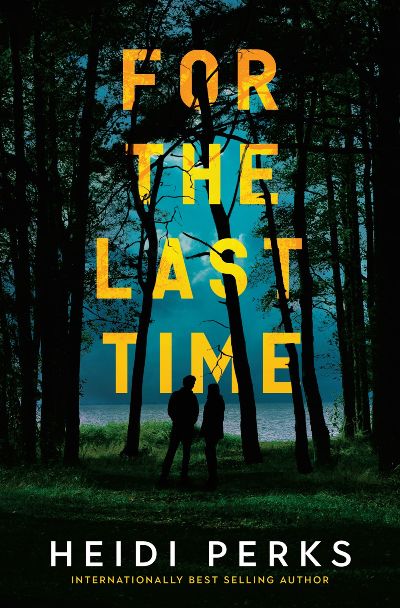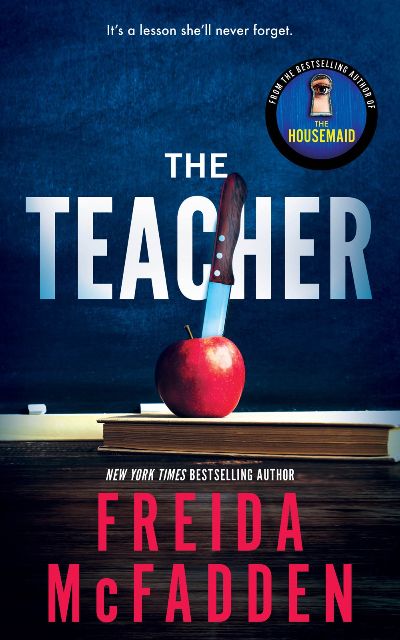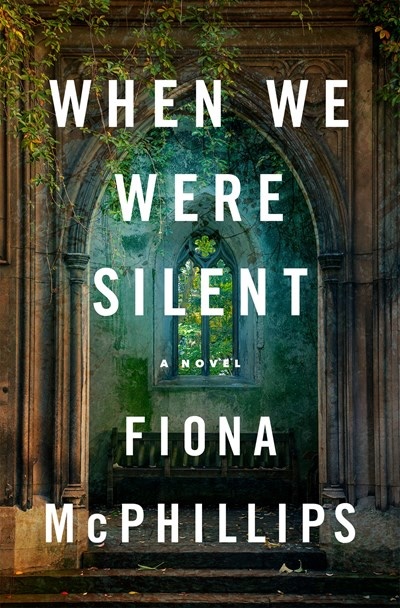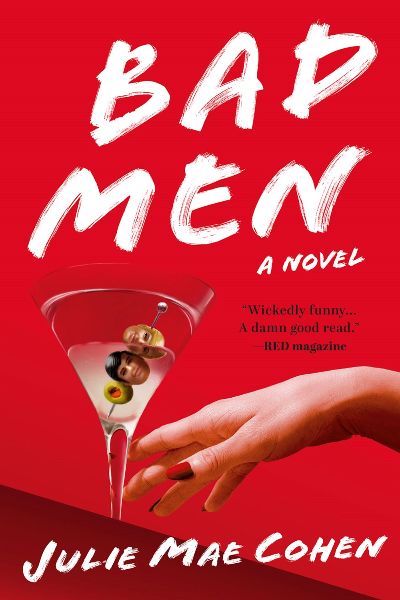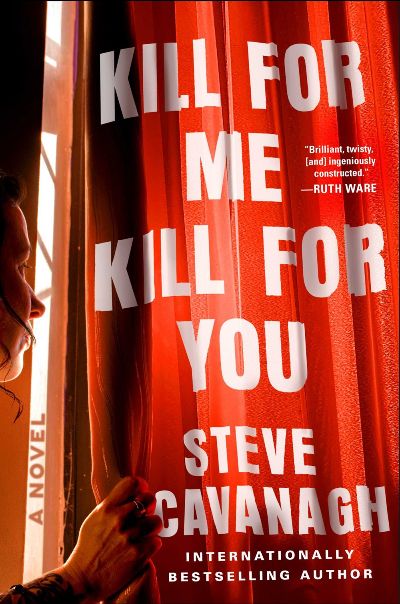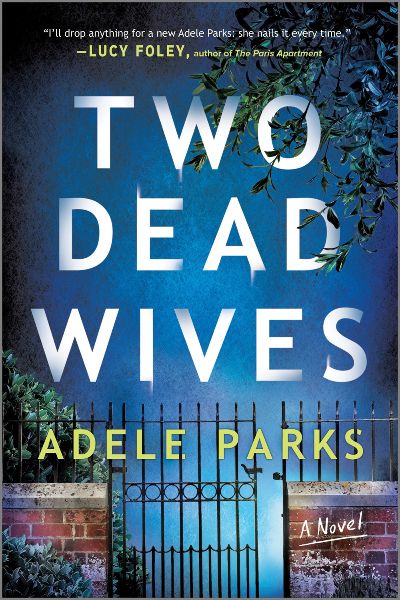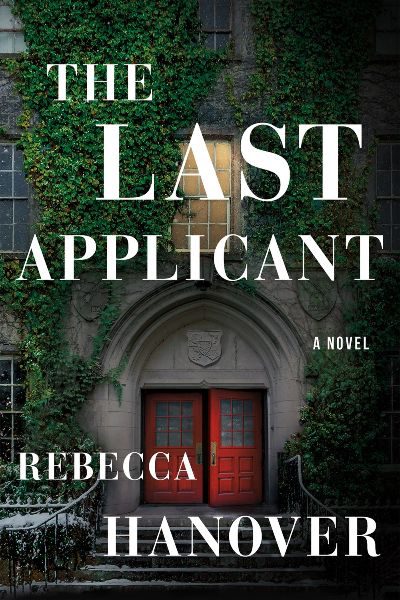At first, this novel seems to be a predictable, mildly entertaining thriller. Erin and Will take themselves off to marriage counseling because something has gone wrong, at least for Erin, who is suddenly putting her husband at arm’s length. But what’s the source of the problem? Even their counselor, Maggie, becomes consumed trying to understand what has gone awry in their marriage, especially when Will is, annoyingly, nearly the perfect man. Then, out of nowhere, Perks drops a clue that made my head spin, cranks up the narrative’s pace, and pulls us deeper into the disturbing past of Erin and Maggie. Since this is from multiple perspectives, and jumps skillfully around the narrative time-line, readers will have fun trying to put this complex, fractured and totally compelling story together. A perfect read for fans of Lisa Jewell and B.A. Paris.
Psychological
This debut novel should come with blood-pressure pills. The tension at first comes from strangeness: Mother; Father; their daughter, Juno; and son, Boy live a harsh, homesteading life alone on an island. Is it the present day? What part of the world are they in? Is the mortal danger from outsiders that the parents warn about real? The timing element is all that’s clear for a good portion of the book: it’s the current day, but apart from visits from the mailman who comes from the mainland, during which Juno and Boy must hide from view, the rest is unknown. Bit by bit, teen Juno’s desire for freedom and her determination to find out more about their situation despite her sinister, violent parents’ “seven commandments” (including “We must always kill quickly and painlessly”) ramp up the fear to a terrifying do-or-die scene. Readers will be rapt as they race to the end to find out who survives this nightmare that’s effectively mixed with a fairytale motif echoing one of Juno’s favorite stories. Menger’s previous work is in film, TV, and audiobooks: try his Audible Originals Monster 1983 and Ghostbox while you wait for this gripping thriller.
Mark Lausson is a young English professor at an elite, liberal arts college (think of Kenyon) in Ohio. Yes, he’s incredibly fortunate to have landed the job. But that does little to lift his mid-grade depression and his raging sense of ennui. While he should be enmeshing himself in the life of the college, publishing articles, and working on his book—“cultural discourses of gay sex and murder” is his topic—instead he lets time slip away, unaccounted for. Until the third week of the fall semester, when sophomore Tyler Cunningham walks into his classroom, like some sort of louche meteor entering his atmosphere. Soon, Mark’s fascination turns to obsession, and the two become lovers, with secrecy serving to ramp up the intensity of their affair. This book builds slowly, gracefully, and we’re nearly three-quarters into it when that magical thing happens and readers begin to realize that nothing is what they thought it was. Wonderfully paced and terrifying in its conclusion, this is a book meant to be devoured, not read. I absolutely cannot wait for Willse’s next work.
Poor Addie. Her relationship with a teacher last year—when nothing even happened!—has made her the most loathed student at Caseham High. Now it’s September, and not a day goes by that she isn’t bullied by one of her fellow classmates. Thank goodness for Nate Bennett, her uber-handsome English teacher, who acts like she’s the next Sylvia Plath and invites her to join the poetry club, offers her lifts home, and arranges mini-conferences with her after class. But shouldn’t Nate be a little more careful? Poor Eve, Nate’s wife and a mathematics teacher at Caseham. The Bennett’s marriage has pretty much disintegrated—lovemaking is scheduled monthly, although excuses are readily produced. Her one pleasure? Fondling the Louboutin pumps (she’s a full-on fetishist) at the local mall while rolling around in the shoe boxes with the salesman. Secrets are everywhere in this sparkling narrative that moves like a Japanese bullet train, offering plenty of surprises along the way. For fans of B.A. Paris and Shanora Williams.
When Louise (Lou) Manson, a professor at Trinity College, Dublin, goes after a predator from her former school, there are serious repercussions…for her. Of course, says her boss, she must understand that she can’t work while this is going on. And it’s unthinkable, says her daughter’s swim coach, that the teen will be allowed at a swimming competition that meets at the school in question. Moving back in time, swimming plays a prominent role in this debut that mirrors the histories of sexual abuse of some athletes that have come out in recent years, this time focusing on the athletes themselves and their desire for justice. Lou, a great student but whose family is poor, was motivated to get a scholarship to Highfield Manor, the school where her friend killed herself as a result of abuse. As a student, Lou believes, she can catch the culprit red-handed and bring him to justice. But it’s a foolish plan, one that enmeshes her immediately and for years in mental and physical torture and that brings all involved to a courtroom nailbiter. That’s when we think it’s over, but McPhillips has twists in store in this absorbing psychological drama that examines the relative strengths of loyalty, revenge, and truth. A spot-on depiction of the maelstrom that is teenage friendship is a plus. Try this one if you like a story of a woman who’s had enough and isn’t afraid to show it anymore.
Peikoff’s latest exploration into choice and free will takes the reader to a future in which families can choose their baby’s characteristics and genetic makeup before gestation and birth. It’s as simple as getting DNA, and clinics and pre-selection counseling have strict protocols to ensure the parents have the background necessary for a successful transaction. Celebrities need security to keep their DNA from inadvertently being left behind at places they frequent and then being stored in a black-market site called the Vault. For a fee, you can purchase a child that would be considered a legitimate son or daughter of that celebrity. A surrogate named Quinn starts to believe the source of the infant she’s carrying is not a widower’s dead husband’s DNA but a famous singer named Trace Thorne. A young journalist named Lily sees her older parents use unscrupulous methods to have another child. Peikoff does a terrific job of world-building a complex but realistic future full of jaw-dropping twists. Baby X is great sci-fi and reads like a terrifying episode of Black Mirror.
This is the year in which British women are taking up arms—or knives, poisons, or other instruments—and knocking off the bad men in their lives, from abusive husbands to rapist uncles to misogynistic politicians. Saffy Huntley-Oliver—socialite, thrice an heiress, and a devoted serial killer—loves nothing more than eliminating such men. “Killing bad men is my private hobby, my passion project, the thing that makes me tick. It’s my own humble attempt at smashing the patriarchy.” She got her start early on by drowning her stepfather, who was abusing her and about to move on to her younger sister, and she hasn’t stopped since. Until she crosses paths with famed podcaster and big-time crush Jon Desrosiers, who has made a career out of tracking down serial killers, often aiding the police. Can opposites attract? It’s rough at first, as Jon is going through his own troubles—like a divorce—and is ready to give up his obsession with serial killers (is he glamorizing them?) in the hopes of winning his wife back. It’s one part rom-com and two parts crime fiction as the story expertly ricochets between Saffy and Jon. Every detail is absolutely perfect, from Saffy’s posh wardrobe and lavish apartment to Jon’s rescue dog, Girl, and the annoyance of fandom. Humorous? Totally. Dark? Absolutely. A debut? Impressive. For more feminist murderers, try How To Kill Men and Get Away With It, How to Kill Your Family, and The Best Way to Bury Your Husband.
Amanda and Wendy meet on Manhattan’s west side at a bereavement group for parents. They’ve both lost young daughters to horrific deaths, and believe that the cops, who have identified the perpetrators but lack the evidence to arrest them, are moving way too slowly. Primed for revenge—no mother should go through what they’ve experienced—they’re ready to take matters into their own hands. But if they kill their perps, they know the cops will be all over them, viewing them as prime suspects. What if they help each other out and switch murderers—I’ll kill yours, you kill mine—a plan that will provide them with air-tight alibis? Just as I was ready to sit back and enjoy a new take on Patricia Highsmith’s Strangers on a Train (and the subsequent Hitchcock film), the narrative suddenly veers off-road—way off-road—introducing another character whose story helps catapult the novel into something even darker, more terrifying, and totally gripping. Thriller fans will absolutely love being taken on this wild ride, where nothing is what it seems and no one can be trusted. Brilliant and sharp, ingenious and disturbing. For fans of The Silent Patient and The Girl Who Was Taken.
This sequel to Woman Last Seen (2022) publishes the day after Christmas, but it’s far from your traditional holiday read. It does, however, provide more than ample entertainment for days off and/or fuel for thinking away interminable events. The main thought provoker is: how does a woman manage to be married with kids in one family while also married to someone else? How are the two husbands and the kids supposed to feel now that Kylie, also known as Kai and Leigh, the bigamist whom they thought they hated, has gone missing? And what’s the second husband to do, accused as he is of Leigh’s murder, when he knows he didn’t do it and nobody even knows if she’s actually dead? Leave this one up to the kids, who are sick of the media firestorm around them, not to mention tired of their mother’s best friend who has moved in just a little too quickly and whom they know visits Dad’s room at night. Philosophical questions quickly give way to a thrilling investigation and final pages that will keep readers on edge and rooting for justice.
This novel takes place in the social black hole that sucks in (very) rich New York City parents: admission to the kind of private elementary school that costs the same as college. These institutions usually seem to be named with an eye toward Beatrix Potter characters attending—St. Bernard this, country that. This one’s called Easton but is nevertheless The School to attend. That’s why admissions director Audrey Singer is only surprised by the casual tone of a begging email from a mom who didn’t realize the application pool would be capped. Sarah Price is desperate, devastated, disconsolate, not to mention a little drunk, and fears she has “completely derailed” her son, Eli’s, future. Audrey makes the mistake of allowing an exception to the rules, and that’s all it takes: Sarah now begins to stalk the gatekeeper of her dreams for Eli, with her antics growing ever more unhinged as decision day grows closer. Fans of psychological thrillers and mysteries will lap up the tense moments created by the power imbalance between Audrey and Sarah; emotional ups and downs that stem from the women’s private lives add to the roller coaster effect. As the novel is episodic, cliffhangers will thrill readers at points, and there’s a completely unpredictable ending twist. Pick up this one if you enjoyed Chandler Baker’s Cutting Teeth or Sylvie Perry’s The Hawthorne School.

